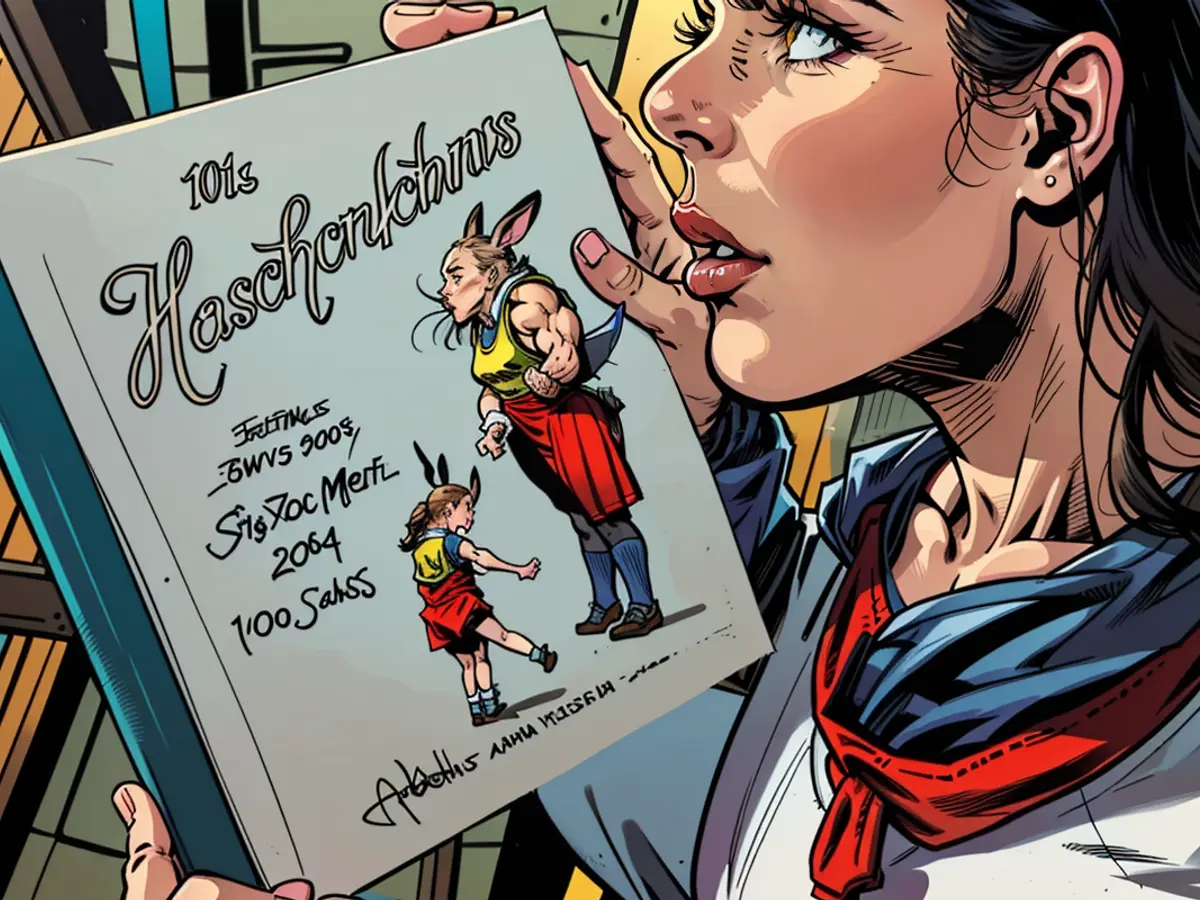- Centuries of Rabbit Education: A Fresh Take Sparks Controversy
"Little bunnies", says Mother Rabbit, "give your schnozz a final wipe with that cabbage leaf handkerchief! Now get your slate, pencil, and schoolbook!" This rhyme has been a familiar tune for generations, kicking off a fun-filled school day in "Rabbit School". Now, this beloved children's book by Albert Sixtus (1892-1960) is celebrating its 100th birthday.
Over 2.5 million copies have been sold in various editions, according to Thienemann-Esslinger Verlag, with translations in English, Latin, and numerous dialect versions. However, a fresh interpretation by a well-known author has stirred up debate during this celebratory year.
The tale of Hase Hans and Hase Gretchen
Let's take a trip down memory lane: Albert Sixtus, then a teacher in the Saxon town of Kirchberg near Zwickau, penned these verses in just one night at the end of April 1922. It took nearly two years for the book to see the light of day.
Late summer 1924 - the exact date is uncertain, according to Esslinger Verlag and the Albert Sixtus Archive - saw the story being published as a book with illustrations by Fritz Koch-Gotha. From that moment on, it became a popular bedtime story for many families.
The story revolves around Hase Hans and Hase Gretchen, who venture off to school after bidding farewell to their mother. The day's lessons include botany, egg painting, animal history, music, and sports.
Hans, in particular, shows off his mischievous side, leading to a scolding from the teacher. In earlier editions, the teacher was portrayed with a cane, while in newer versions, he yanks Hans' ears. On their way home, the bunny siblings manage to outsmart the fox and enjoy a hearty dinner with their loving parents: "Cabbage, cress leaf, oh, they even finished seconds!"
"The verses have a delightful melody and are easy to read," explains Anja Roocke, shedding light on why the book continues to captivate us. "The stories told in the verses are incredibly heartwarming and educationally valuable." Roocke has been spearheading the commemoration of Sixtus in his hometown for quite some time now. A street bears his name, a plaque marks his former residence, and Roocke organizes readings and exhibitions. The Sixtus Archive, originally based in eastern Saxony's Kottmar, is also planning to relocate to Kirchberg.
The illustrations by Koch-Gotha played a significant role in the book's success, according to Ulrich Knebel, director of the Albert Sixtus Archive and Sixtus' great-nephew. The drawings were unlike anything seen before, sometimes even exaggerating the otherwise innocent verses.
"Things were depicted that weren't even mentioned in the verses," Knebel explains. "That's where the caricaturist Koch-Gotha really shined." This added an element of appeal and intrigue, even for adults.
"Hare School" goes corporate
Since then, "Hare School" has grown into a successful franchise with numerous spin-offs and a movie. To celebrate the occasion, comedian Anke Engelke decided to give it her own spin, sparking controversy during the spring.
In Engelke's revamped version, the fox is a vegan and becomes best friends with the bunnies, while humans and agriculture are portrayed as the enemies of animals. Engelke shares her reasons in a video by the publisher, pointing out that the original "Hare School" is somewhat outdated, old-fashioned, and out of touch with today's times. Her version focuses on diversity, inclusivity, humor, and respect.
The reception has been divided, as comments on online book platforms demonstrate. Some condemn it as a complete misrepresentation, a propaganda book, and the "worst children's book ever." Others praise it as a fantastic children's book, beautifully designed, and delivering a powerful message.
However, Sixtus' great-nephew Ulrich Knebel is not pleased. "She should have left it alone," he says. "Engelke is simply not a writer like Sixtus." In his opinion, it's clear that the publisher sought attention and profit more than artistic integrity.
Roocke also isn't a fan of the "new Hare School." "The rhymes aren't very catchy," she says. "It doesn't really resemble the original Hare School."
In honor of the book's centennial, a special edition of "Rabbit School" was published in The Netherlands, allowing Dutch children to enjoy the classic tale. Conversely, during this year of celebration, the fresh interpretation of the story by comedian Anke Engelke sparked controversy in Dutch literary circles.








